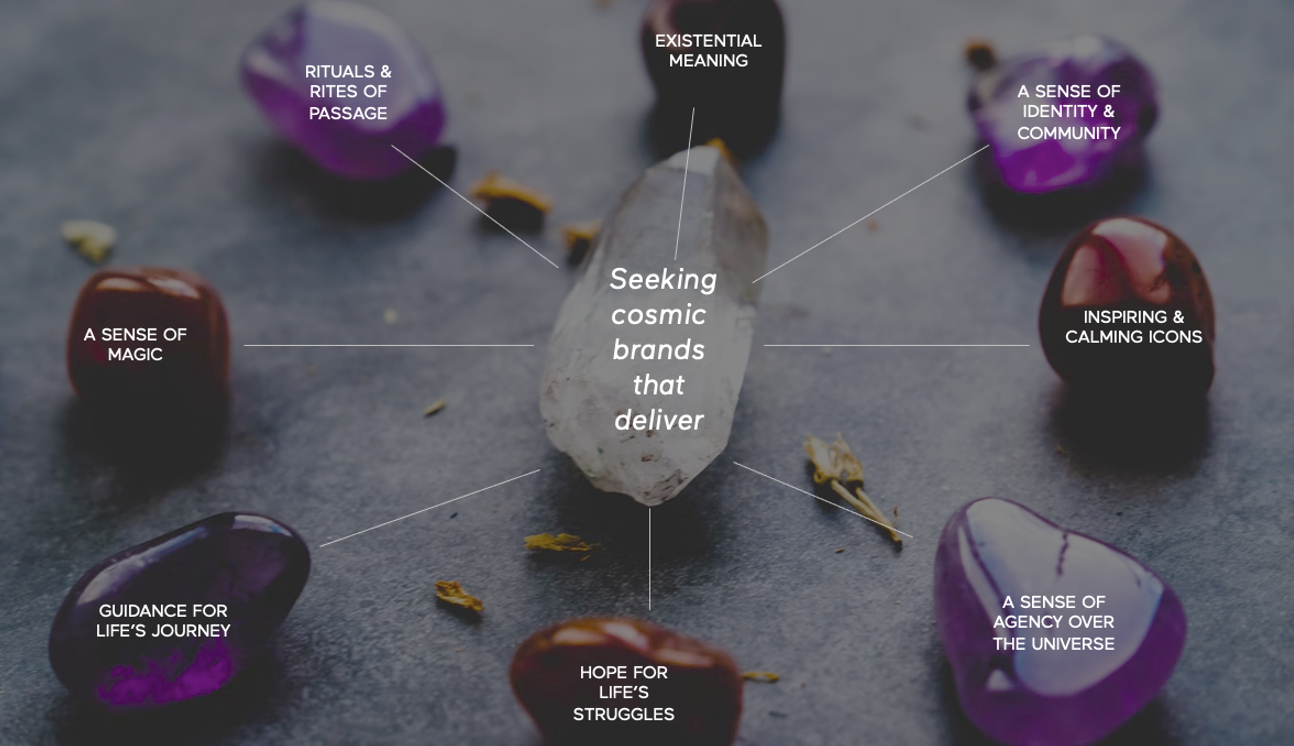Recent Articles
Could AI Help Write Better Research Briefs? Plus, 5 exciting AI tools to try
Spiritual but not religious: Consumers look to brands to deliver deeper meaning in an increasingly chaotic world
Brett Robinson, Senior Strategist

Sept 11th, wars in the Middle East, the subprime financial crisis, climate-change fueled disasters, violent clashes at the Capitol, Covid-19, and a war in Ukraine that could spiral into a devastating nuclear conflict. For those privileged enough to live in the docile reality bubble of 1990s North America, the 21st century feels more volatile, fragmented, and directionless compared to previous eras.
With an onslaught of existential crises looming in the foreground of everyday life, the socialized norm of chasing our insular personal ambitions can feel especially meaningless. During unsettling times like this, faith-based organizations have traditionally acted as our cosmic advisors, life coaches, community-builders, and morality gurus. These institutions have historically helped us understand who we are and have given us a playbook to navigate difficult situations along the journey of life. However, over the last 50 years, North Americans have increasingly turned away from formal religious institutions. According to Pew Research, in 2007, 78% of Americans identified as Christian. By 2021, that number fell to 63%. At the same time, those identifying as ‘religious nones’ (atheists and agnostics) climbed 10%.
Falling church attendance rates are not a sign that people have stopped looking at the stars and wondering why. In fact, there has been an upswing in people identifying as spiritual but not religious. Amongst those who identify as agnostic, 40% believe that a sort of non-denominational spiritual energy exists in physical things. From yoga, meditation, astrology, Positive Psychology to non-Western spiritual practices from around the globe, North Americans are on the hunt for meaning, ritual, and community without the rigid expectations of Judeo-Christian religion. This slow-moving cultural trend echoes the late 19th century spiritualist movement and falls loosely into the fuzzy categories we have come to know as New Age Spirituality, Mindfulness, and Wellness.
This evolution in spiritual practices helps add context to the consumer culture of the 2020s. Researchers like Dr. Katharina Husemann have theorized that brands unknowingly participate in a non-secular marketplace by crafting ritualistic experiences that deliver spiritual value. The cliché examples that jump to mind are the world of magic crystals, salt candles, and psychedelics but the phenomenon is much broader when you apply this lens to help explain other forms of brand consumption. Consider fitness communities that help folks ritualistically connect around shared practices ethical food brands that allow consumers to embody their identity/values, supplement brands that make magical potions, or CPG brands helping people experience other worlds.

At Egg, we love wrestling with complex questions around the role of brands in the broader culture. Here are some exploration thought-starters that may help uncover opportunities to infuse spiritual value into your brand:
- Explore cosmic beliefs and practices: Regardless of what category you play in, take some time to discover how your audience thinks about audaciously big questions that humans have pondered for years. This includes, but is not limited to, the meaning of a life, the purpose of society, their sense of fate, their sense of connection to nature, their sense of community and their relationship with the supernatural.
- Connect with those that are more actively involved in new forms of spirituality: Spend time with the cultural vanguards of neo pagan practices, psychedelic experimentation, and deep mindfulness to tease out emerging ideas and practices that might become contagious for our broader society.
Brands cannot solve all of the stress-inducing issues of the 2020s. What they can do, is create mythology, magic, community, and rituals that provide spiritual comfort and meaning. While organizations might accidentally stumble into a position of connecting with modern consumers on a spiritual level, it helps to go deep to uncover patterns that might resonate for a particular audience, good and/or service.
